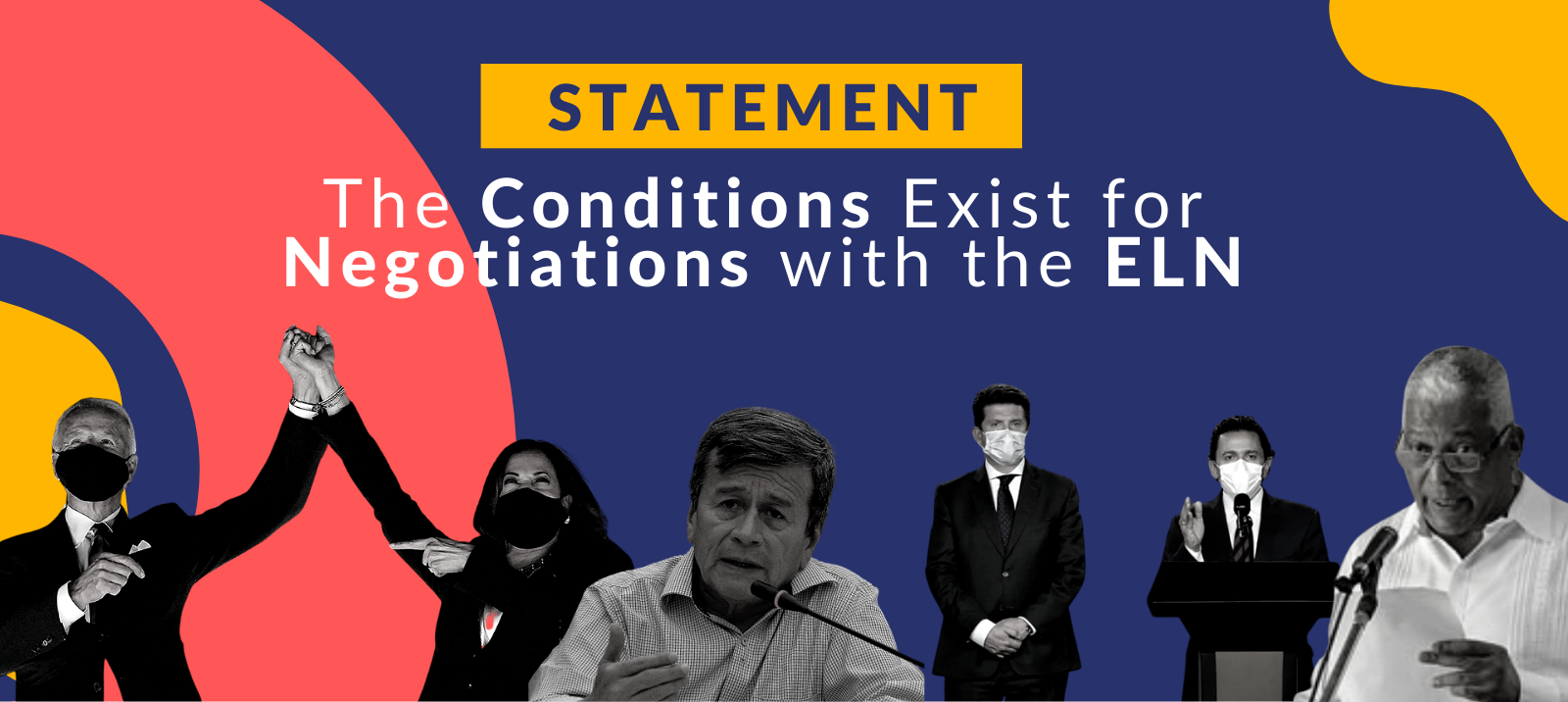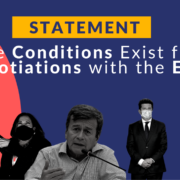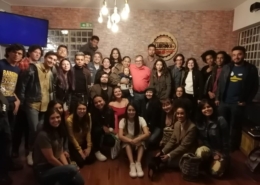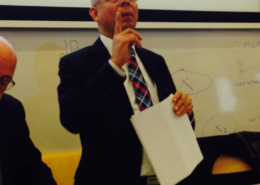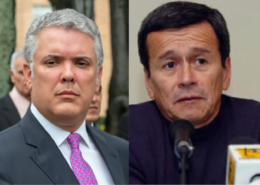Feb 11th / 2021
On the 9th February, the Rodeemos el Diálogo team that is following an eventual negotiation between the Colombian government and the ELN held a public dialogue with Socorro Ramírez, emeritus professor in the Institute for International Relations and Political Studies at the National University of Colombia, and Luis Eduardo Celis, an analyst of the armed conflict, about the perspectives for peace with the National Liberation Army (ELN in Spanish). In view of this dialogue, and given that this year represents the 30th anniversary of the first attempt at negotiating with the ELN, that the critical humanitarian situation in the territories where the ELN is present, and that the pandemic aggravates this situation further still, we consider that a peace process is now more urgent than ever.
A negotiated solution with the ELN depends on the geo-political context in the region, especially on the USA, Cuba and Venezuela. The recent action taken by Cuba in informing the Colombian government of an alleged military attack by the ELN’s Eastern Front is yet another proof of that country’s support for peace in Colombia. This gesture opens the way for Cuba and Colombia to jointly address the presence of the ELN peace delegation in Havana, and to seek solutions that take into account the protocols around the breakdown of negotiations. It is also an opportunity for the Biden administration to withdraw Cuba from its list of countries that sponsor terrorism, since one of the reasons that the government of President Trump gave for including it on the list, was the presence of the ELN delegation. Thus Biden could promote a more cooperative regional environment in order to resolve an increasingly trans-national conflict.
There is no great likelihood of a successfully defeating the ELN by military means. The State has succeeded in weakening the ELN on many occasions, but it has never defeated them. Despite their internal differences throughout its history, the ELN have been able to resist the great military attacks. On the other hand, a process of state-building in the regions with an ELN presence, would help both parties to achieve the goals by democratic paths.
A negotiation with the ELN should contain two elements: a commitment by the State to effect real transformations in the regions, and the participation of communities in this process. This would respond to the historic demands of the ELN, to the government’s discourse of ‘peace with legality’, and above all to the communities’ requests, who demand to be heard and protected. In order to advance, both parties should first prioritise humanitarian agreements so as to alleviate the situation in the regions.
In order to reprise a negotiated solution, it is fundamental to agree a defined, time-limited agenda that includes discussion of the structural transformations to be effected with the collaboration and participation of the communities in conflict zones. Civil society can help by strengthening the voice of the communities, by demanding an end to the conflict and preparing the ground for building a ‘complete peace’ in Colombia. We invite the parties to urgently seek ways out of the war, with the support of the international community.
